For the past 12 months, the Guardian has tracked the journey of a group of young people from across the UK, capturing their intimate feelings and experiences as the pandemic upends their lives. Here they tell us how the past year has affected them – and transformed their futures.
Aadam Patel, 22, lives in Dewsbury, West Yorkshire, with his parents, Musa and Zubeda, and his brother and two sisters
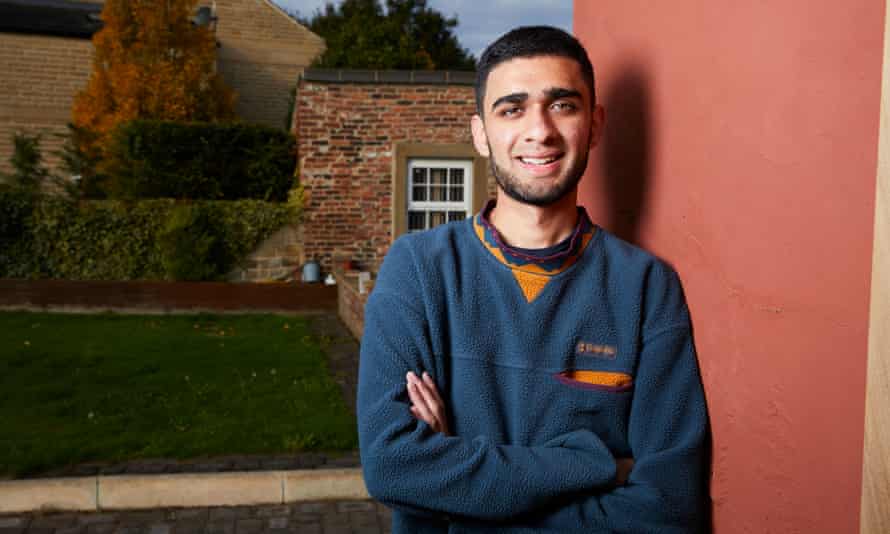
Since lockdown ended, I’ve kind of exploded. It feels incredible to be able to get out there again and apply for the jobs I want. I’ve learnt that there’s no point in wasting time; I’ve got to do what I want to do, and do it now.
It’s a bit crazy, given how bad things are for so many people, but I’m actually living the dream at the moment. I was really lucky to get a job in the law during lockdown, but sports and sports media has always been my passion, and I’ve managed to get a job with the English Cricket Board’s 100 Rising programme. I’m a Rising Reporter and I’m having the time of my life.
The law firm actually offered me more money to stay, but I’d been working from home for 10 months and I’d had enough of being stuck in a bedroom, so I turned them down and took a cut in salary to join the 100 Rising programme, and now I’m out and about all the time. I’m working weekends, late nights and early mornings, and have never been happier.
Working from home just doesn’t work for people my age. You need all the opportunities that come to you simply because you happened to be in the right place at the right time, when someone needs something done. You need to learn all that stuff you absorb just by being in the room as someone who’s been smashing it out for God knows how long.
I don’t think there was anything wrong with asking my generation to sacrifice the last 18 months of our lives for the good of the elders in our society. But I’ve got a kind of a ruthlessness about me now. I’m grateful for absolutely anything that comes my way and I’m going to make the most out of whatever it is. I don’t want to waste any more time.
The lockdown hasn’t affected all my friends in the way it’s impacted me: I’ve got friends who have got too comfortable working from home. It’s taken away their drive and energy; they’re happy now, just being safe and paying the bills.
I’ve probably never needed to rely on my faith as much as I have in the past couple of years. I’ve always known the power of religion, but the pandemic really allowed me to dig down into it more deeply. It’s helped me deal with losing people to Covid as well as all the other negative impacts of the disease. It’s also helped give me a mindset where, whatever happens in the next few years as a result of the pandemic, I know I can get through it because I’ve got through everything up to now.
As much as I don’t want a lockdown to ever happen again, I’m thankful for what it’s taught me; this knowledge that there’s no point in wasting time. That I’ve only got one crack at every year of my youth. I might have lost my 21st year, but I’ll never be 22 again, so I’m going to make it count.
Oliwia Charowska, 17, lives with her younger brother, Marcel, and her parents, Joanna and Adrian, in Bromley, south-east London
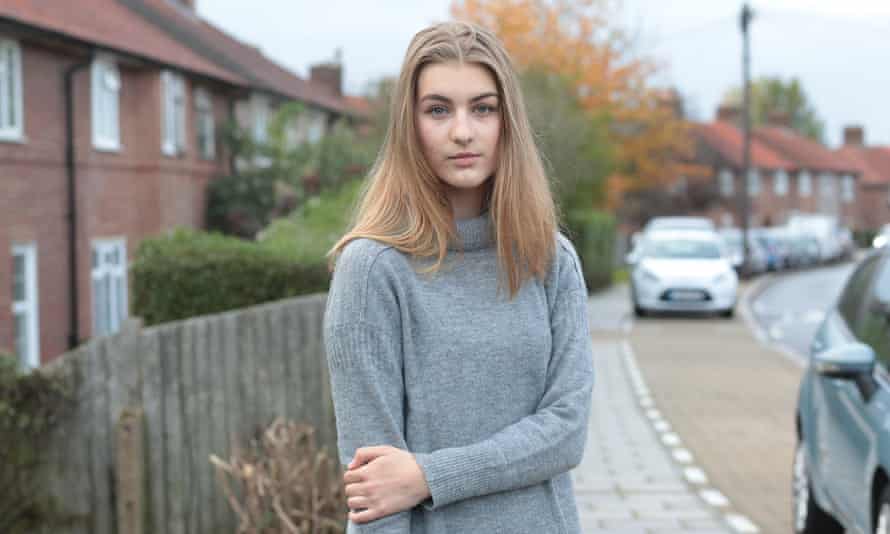
Covid has formed the person I am and the adult I’m growing into. The UK started talking about Covid when I was 15, which is when you normally start having all those “real” teenage experiences. Now I’m applying to universities and in January, I’m going to be 18 – I’m going to be an adult.
It sounds wrong to say this, because I know this has been a dreadful time for so many people, but if I look at my self-development during these formative months, it’s been positive for me: Covid has made me grow up pretty quickly and has changed my perspective on almost everything, from being more appreciative of the people around me to taking control of my own decisions.
It has sharpened my interests: I took on politics as an extra A-level because I became more politicised during the lockdown, and now I’m applying to study that at university. That’s entirely because of Covid.
It’s not just me. All my friends are going to be different from young people entering adulthood at any other time because we had our formative teenage years taken away from us. In some ways, we’ll be more mature and wiser, because we’ve had to grow up very quickly in this dystopian time. But in other ways, we’ll be very naive grownups because we haven’t had all those experiences teenagers normally have in the run-up to adulthood. Maybe we’ll learn the same lessons, just later than previous generations. I don’t know.
My education is a worry. I’ve got my A-levels this year and the school doesn’t know yet what form our exams will take. It says it knows as much as we do from reading the newspapers.
But what’s concerning me even more is that these will be the first real exams I’ve ever taken, so I don’t know how to prepare for them or sit them. How could I know? I’ve never had to do a real exam: I didn’t take my GCSEs because of the pandemic, so the last real exams I took were my Sats in year 6, when I was 10.
I feel I’m behind on my learning, but I know others who are much more behind than me. I’ve got a computer and have been able to continue with online learning throughout the pandemic. But I’ve got friends who don’t have access to computers or their teachers couldn’t figure out how to do online lessons properly.
It’s been really tough for people my age. Not just academically, but emotionally as well. Everyone I know of my age group feels very let down by their decisions regarding our education over the past 18 months. It is very disheartening.
And it’s not just my generation that are affected: the decisions being made now about our education will impact the future of society and how well equipped it will be to function in the future. We’re society’s future doctors, future accountants and future business leaders. For a country to prosper, you need people who feel supported by the government, who are well equipped to then take on and manage future generations.
Knowing that the government’s decisions won’t support me means that I’ve got to go out there and find alternative solutions to be able to do that myself. It makes me want to go into politics because I don’t want any other young generation to feel their government has not supported them. But not everyone is going to do that. Other people my age are disheartened. And that leads to alienation, and that is very bad for the future.
Bethan Rogers, 20, has eight siblings and moves between the homes of her mother, Serena, and her father, Dylan, in Llanarmon-yn-lâl, north Wales
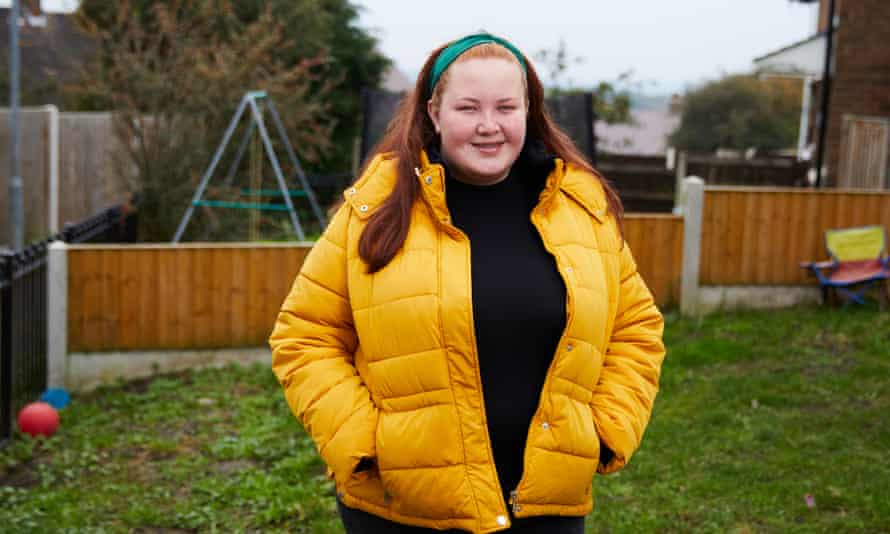
In a funny way, Covid has turned out to be really good for me. Before it hit, I assumed I’d spend my life working in the local pub. I had very little confidence in myself, or my goals for the future. When the pubs were closed during the pandemic, I lost my job. My confidence – which has never been great – collapsed and I had problems even leaving the house.
But then I found work as a carer, helping people who have come out of hospital regain their independence. The job has transformed me. It’s given me so much confidence. I have to take the lead with the service users to get them better, I have to interact with managers, and I have to have regular training with other carers – and socialise with them too.
There’s a career structure to my new job, as well as training, and better pay than working in a pub. It’s helped me think about the future. My confidence still isn’t as good as other people’s, but I’m so much better than I was.
I’m now thinking that I might do a university course in law next year. I’m able to think like this partly because I’ve got all this new, extra confidence in myself, but partly because the courses are now all online, thanks to Covid. I learn better online; I can’t take information in when it’s given to face-to-face lectures and learning.
So yes, my life is pretty good now. I’ve got a stable job, I get on well with my colleagues, the managers and the service users.
But a lot of people my age have become a bit stuck because of Covid. They haven’t been able to work to even raise the money for a laptop, let alone to move out of home. All the work around here has dried up: the farms are struggling so much that they can’t afford to employ people on short-term work, or are paying them much less than they have done before; prices have gone down so much that they’re selling cows for £100 where they used to sell them for £150. But they’re having to pay out the same to raise that cow, so they’re really struggling.
Another impact of that struggle is that people my age now don’t want to work on the land because they see how thankless it is. It’s really noticeable – I’ve got a friend who started at the agricultural college in September and they’ve had to combine courses because so few people enrolled there this year.
A lot of people are still scared of Covid. Every time you see it on the news, it’s people dying and in ICUs. So I think a lot of the younger generation are opting to work from home where they can, so they don’t have to go out.
We had to stay at home for almost two years and we’ve got used to it. Loads of people I know are really reluctant to go out. They say they don’t want to put themselves at risk of infection, but I think there’s some depression creeping in, to be honest. There’s a lot of anxiety, a lot of young people struggling behind closed doors.
The son of a care support worker and a Congolese-Rwandan refugee, Dylan Kawende, 24, is from north-west London and is studying at St Edmund’s College, Cambridge
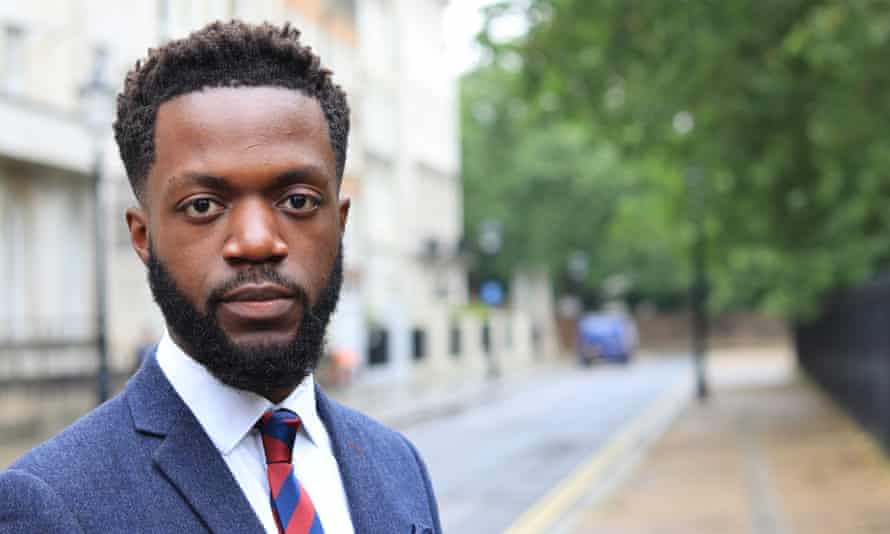
For me, Covid has been the best of times and the worst of times; it’s made me more vulnerable, but also more vocal. It’s been an arduous experience and has forced me to be a lot much more introspective than I normally am. That’s a blessing and a curse because, while being introspective allows you to ask yourself meaningful questions, it can also allow self-doubt to creep in.
It’s made me a lot more humble: I recognise that I have my limits and I need to lean on others – but it’s also made me a lot more vocal and outspoken about issues that I care about because I’ve seen that institutions like the UK government has not done enough and are not being held accountable enough.
Young people have disproportionately been affected by Covid. The failure of the government to recognise and care about that has greatly diminished their faith in society and their faith in government. We feel betrayed, used, exploited and – for some – that becomes perfectly justifiable grounds to just do whatever we want. To feel so alienated and abandoned by government fosters a kind of nihilism. It’s quite poisonous and toxic.
Because everything feels like its collapsing specifically for our generation, it’s no wonder young people try to avoid the mainstream news. I see students around me, as well as my cousins from 16 and older, all doing this. They get all their information from social media, which means what they think they know is typically very skewed.
That’s not surprising given what we know about Facebook’s algorithms pushing people ever further into extreme opinion groups, but it is hugely problematic; my cohort aren’t getting enough information to have a healthy understanding of these issues, and that’s a recipe for disaster. It leads to a kind of epidemic of false, or partially false, information, and the consequences of that are too many to count.
I see it myself in family chats and university WhatsApp threads: people who I thought were serious, political and thoughtful, passing on conspiracy theories about all sorts of things.
The polarisation is pretty extreme; when I try to engage with these critical discussions with friends and family, I’ve been classed as arrogant, and that’s not healthy. I don’t want to be called names by people who are meant to be closest to me.
Then there’s the societal fallout. It becomes very difficult to organise society if we’re forming into tribes which can’t or won’t debate with each other. The outcome of this could be actual physical conflict, but even if it’s less severe, the environment becomes very toxic.
But there are positive signs. Because of Covid, I’ve set up a scheme, Dare to Dream. It’s pro-bono coaching by me for a primary school in Hackney. What I’ve realised is that my generation, right from the youngest member up, has been politicised by Covid. We’re not buying into this myth that we don’t get it and that we don’t really understand these complex issues. We get it perfectly – and we don’t believe the adults in positions of responsibility who pretend to be surprised when the public objects.
Aryan Nair, nine, lives with his parents, Rakesh and Swetha, and younger brother in south London
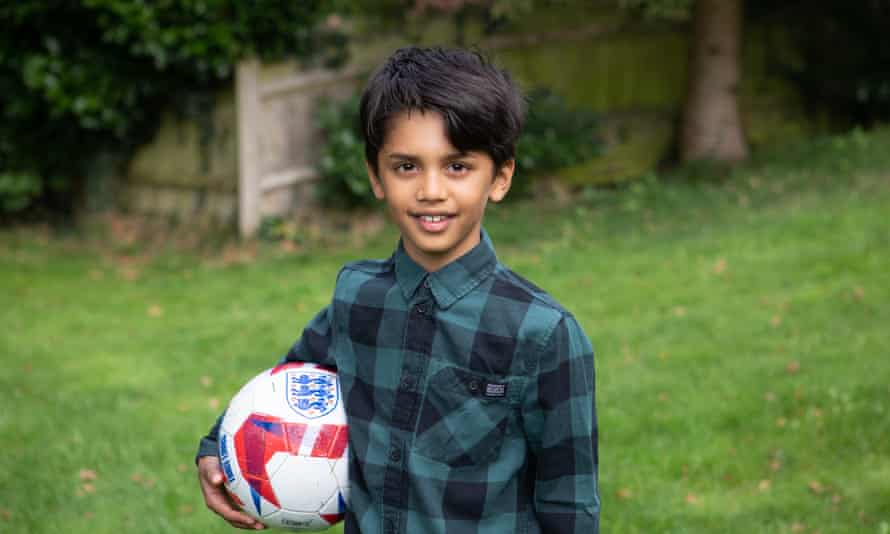
It was my birthday in September. Last year, it was the pandemic and I had no party. It was really boring. But this year, two of my friends had birthdays at the same time and we had a pinball party all together. The whole class came and it was really fun. Seeing the piles of presents was so exciting.
My favourite present was a painting kit. I got a lot more interested in art during lockdown because it was pretty much the only thing I could do when my parents were working, my brother was at nursery and I was all alone. I’ve painted a lot of volcanoes with my new kit. Lots of explosions.
The other thing I got into during lockdown was playing football. I played it for myself for hours in the garden when I was all alone during the day. Now I’m really good – when I wasn’t before – and that’s helped me make friends in my new school. It’s really helped me fit in.
Being back at school seems a lot more fun now we’ve been at home for two years. It’s been so long since I’ve had proper lessons or played with anyone I know that I don’t care that I have to do learning; I just want to be in school to see my friends.
The pandemic hasn’t really changed me except that I’m cleaner now. I’m not worried about hygiene, but I’m worried that if I get Covid, I won’t be able to go to school, and it would be so boring to have to be at home again.
I don’t talk about the pandemic with my friends. We don’t want to remember how boring it was to be at home for so long.
My mum still works from home, but my dad goes into work for two days a week now. I don’t like it when he’s not here any more. He used to be away a lot before the pandemic and I didn’t think about it, but now I’ve got used to him being around all the time and I really like it. The house feels empty when we’re not all in it together.
After I got into football and lockdown ended, I became interested in lots of different sports. I do triathlons now: cycling, running then swimming in the lake near where I live. I do tennis and cricket too. I’m a lot more sporty now.
It’s really weird looking back at the pandemic and thinking that, for more than a whole year, I was just inside my house and the garden. It was really awful. I was bored and I was lonely. I don’t want to do it again.
I want to have the vaccine because then I have a small chance of getting Covid but I’ll do whatever my parents say. I think they want me to have it, which is good.
Nairn McDonald, 25, lives in North Ayrshire with his mother, Lindsay, and two younger brothers
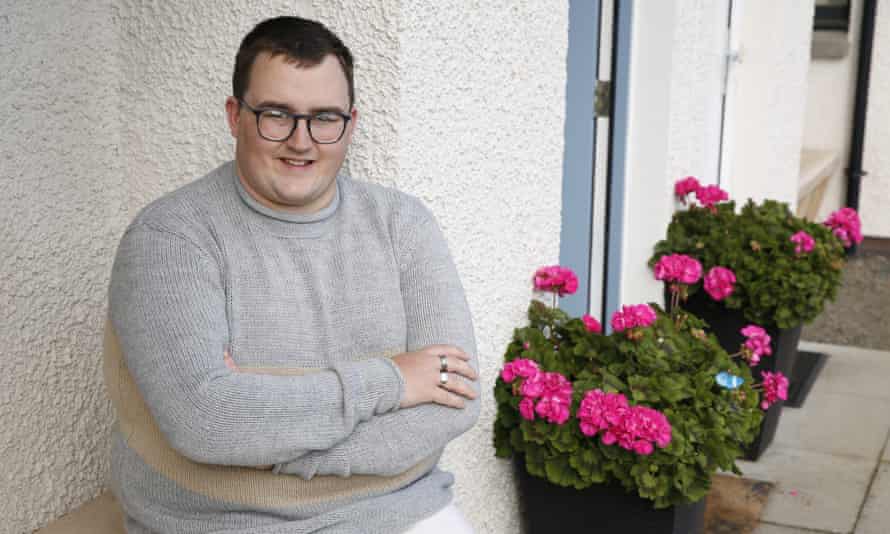
I don’t think we’re the Covid Generation – I think we’re the Forgotten Generation. We’re disfranchised, disengaged, and without hope of any of it getting any better.
A few months ago I really crashed out. I was applying for charity job after charity job but wasn’t even getting to the interview stage; because so many charities have closed down since Covid, I’m up against people with decades of experience. I don’t stand a chance.
I stopped applying altogether. I was utterly hopeless and couldn’t bear the constant rejection. Then I began to look around and realised that almost everyone my age was going through the same thing. That made me feel less hopeless in one way – I realised it wasn’t my fault – but more hopeless in other ways; everyone in my generation is struggling.
The only jobs any of us can get – no matter how qualified we are – are seasonal shifts and low-paid work. Any job that would be a first step in a career is just not being offered to my cohort. I know people with master’s degrees working in supermarkets.
An example of how we’re being passed over is that my little brother, still a year off finishing his university course, is already receiving emails from companies offering him placements and employment.
He’s doing the same degree as me at the same university – and here I am, with the degree and dying to do the job right away but I’m being passed over for someone who won’t be able to start for a full year. Employers would rather wait a year for a fresh graduate than take on someone qualified but who’s been waiting around for two years, stuck and becoming deskilled through no fault of their own. I find that profoundly depressing and utterly disappointing.
In August, I was contacted by Leaders Unlocked and offered a job for one day a week. Even though it’s just one day a week, I now feel energised – like I’m contributing to society, doing something for other people and just that bit more hopeful about getting something else on the back of it.
But around me, I see young people my age just giving up. They’re hopeless about their futures. We were told that if we went to university and worked hard, we’d get a good job, be able to afford a mortgage and to start our own families. But that’s not what’s happening: I can’t even afford to rent around where I live because prices have shot up.
Life is absolutely dire for everyone I know of my age. Everyone I know is completely alienated from the mainstream because there isn’t a single political party who understands what we’re going through.
Even those who, before Covid, were highly political and active in mainstream politics have fallen into a feeling of being totally disfranchised. There’s either a quiet resignation and disillusionment, which leads to people fragmenting into their own little groups and spending their time on social media, or it leads to anger. I know loads of young people who are so hopeless about mainstream politics that they feel their only chance to be active is through direct action.
They feel that if we want things to change, we have to do it ourselves, through direct action, protest and disruption. There’s no point in waiting and hoping that the government or institutions will do it for us.
Sanjana Parashar, 14, lives with her parents, Prasanjit and Shally, in Beckenham, Greater London, and one younger sister
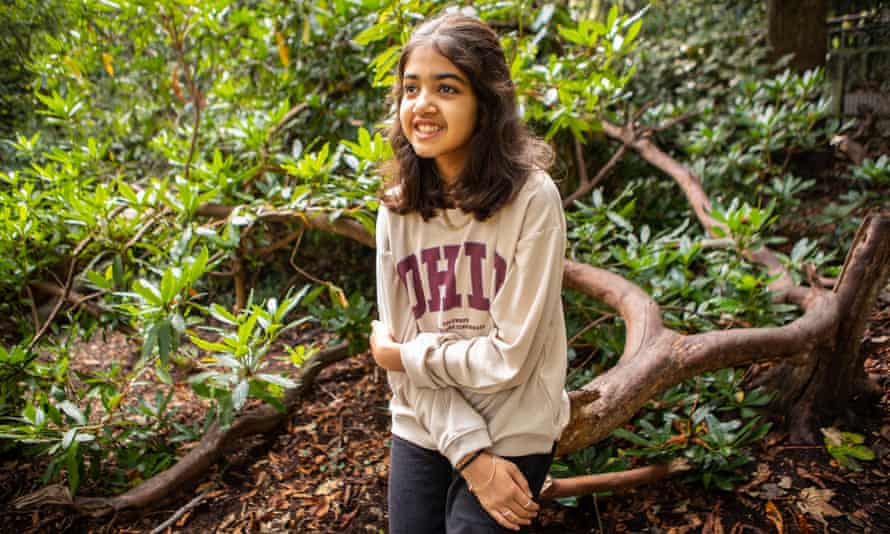
I’m normally a bit nervous of things, but because I was stuck in the house for so long during the pandemic, I’m really enjoying things that previously would have made me a bit anxious. We went to Wales for a holiday in the summer and I didn’t get nervous at all – I just found it really refreshing and exciting.
It’s exciting too, because I’m now able to go out with my friends after school and get some food with them. It’s so much fun to be able to do little things like that: just to watch a movie or go to a mall in the high street.
I am really cautious about cleanliness, though, and what I touch. It’s a real eye-opener to think what the world was like before, when no one really cared and just touched everything without thinking about it. So many surfaces are so dirty; they’re never cleaned. It’s quite glorious to think our bodies were able to cope with that.
My parents are worried about cleanliness too. I’ve stopped going swimming, which I loved, because they didn’t think it was safe enough. I think they’re right; swimming pools are quite dirty because they don’t change the water very frequently. So now I play tennis, which I’ve taken a liking to. It’s a good exercise to develop my muscle endurance.
I know that a lot of people have lost their lives in this pandemic and that, on top of everything else, has made me so grateful for the life I have. I don’t take it for granted any more.
I feel very lucky to be at school. I used to hate having to get up so early but now I’m so grateful to have the opportunity to go to school. In India, where my cousins live, they still can’t go to school and I don’t think I could cope, if I was still having to home-school.
It’s hard to imagine that I’ve been home-schooling for two years. I felt the information didn’t really sink into my brain. Having said that, I don’t think home schooling has impacted on my education very much. I think all students have lost a bit of knowledge, but I feel I’m up to speed on my subjects now, which is good because I’m getting closer to my GCSEs.
At the start of the pandemic, I didn’t think the government could handle it well. I was a bit pushy – I was questioning a lot. But now I’ve seen that they’ve handled it quite well. It’s amazing that they’ve got so many people vaccinated in such a short period of time. I’ll get my vaccine as soon as I can.
Jack Payne, 20, is from Sea Mills in Bristol, where he lived with his mother, Tracey, and brother and sister. He now lives in a student hall in Clerkenwell, London
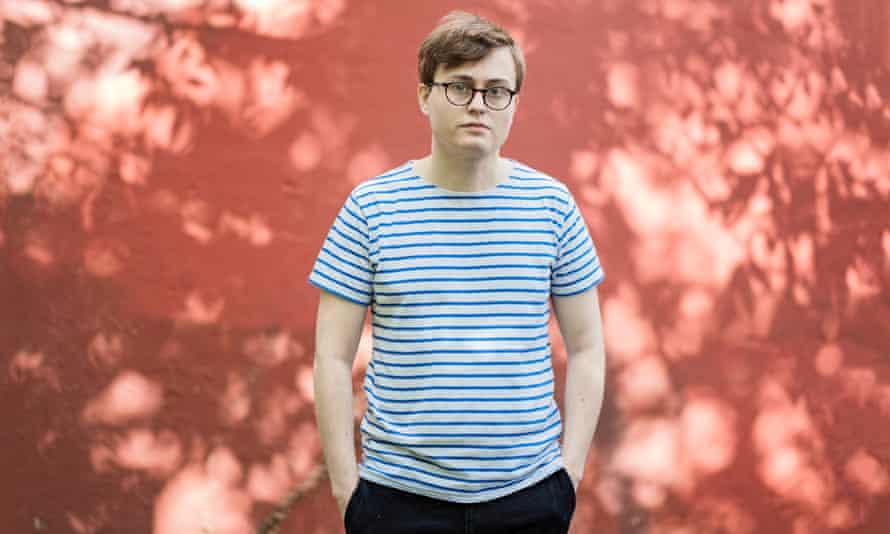
My family is in this weird sort of limbo because although for lots of people now Covid isn’t a thing any more, my uncle and grandad are still really vulnerable. They’ve both been double-jabbed, but there’s still a risk that could be deadly.
It lends itself to this general air of anxiety and concern. I’m also anxious because Compassionate Conservatism is coming to an end and that’s really bad timing: I’m expecting to see this record rise in unemployment on top of a future pandemic and a dreary economic future for young people aged 18 to 30.
The country is so turbulent now, with graduates not necessarily getting jobs, that I’m already anxious about what world I’ll be graduating into in two and a half years’ time. What will “normal” look like when I go out into the world? What will a post-Covid workplace look like? Will there be anything like “community” left?
The world is in a state of flux. I should be preparing myself for it, but I don’t now what I should be doing. I have so many questions – and they’re all very big questions – but there’s no one to ask because I don’t think there are any answers.
It could be exciting, but not with the current government. They should be building hope and opportunity. Rebuilding Britain should be an exciting thing.
But the government has handled Covid terribly. They haven’t acted with integrity in the slightest. But they’re riding high in the polls regardless of all that – regardless of the fact that we’ve got documented, publicly available evidence of all that.
It shows that Labour aren’t an effective opposition. Keir Starmer seemed to have a plan at the Labour conference, but they’re ineffective, and it’s my generation who are going to reap the effects of that, disproportionately so.
Young people are angry and anxious. Everything’s going wrong, from the climate crisis to housing – how could housing prices, already out of our reach, have continued to skyrocket during the pandemic? It’s all brewing and it’s all going to come down on the heads of my generation.
The government has misunderstood young people. We followed their rules for two years and lost a lot of our lives as a result. We should be given more credit for that. Our lives were turned upside down before they’d even begun but the government hasn’t shown any consideration or even awareness of what we’ve given up and gone through.
When we do protest, it’s dismissed as middle-class virtue signalling – like the climate protests. Direct action is the only way young people feel they can get their voices heard, and now Priti Patel is talking about shutting that form of expression down too.
I think the government realise that young people hate them in disproportionate numbers, which is why they’re trying to introduce measures to stop us voting. Again, pushing us out of the democratic process.
It’s paradoxical: the government is only interested in older people, but a country needs younger people to flourish. I can’t see how this country can flourish if this government stay in power. I can’t see how I can flourish.
Holly Ronicle, 11, lives with her younger brother, Noah, between the homes of her father, James, and mother, Emma, in York
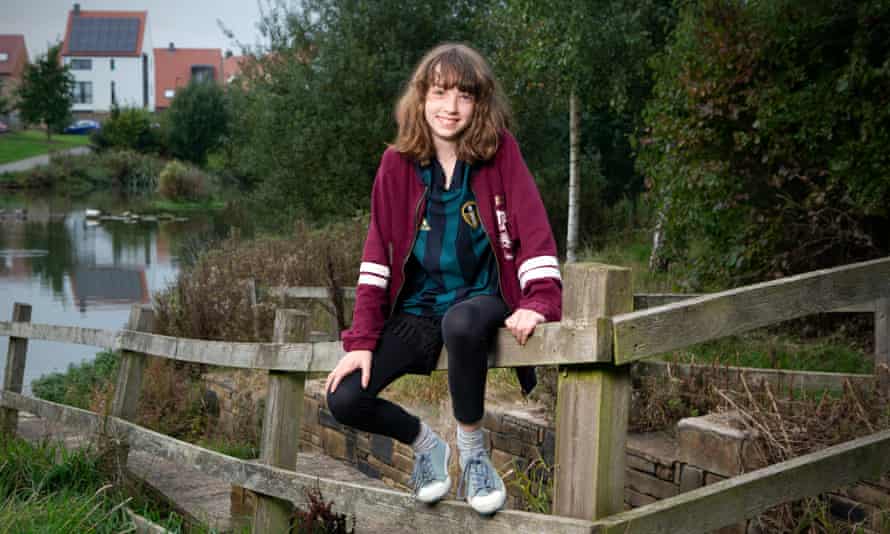
Life is really getting back to normal now, except things keep being cancelled; I was supposed to have a sleepover with friends last week, but one of their sisters got Covid and it had to be cancelled. And there was another party too, which didn’t happen at the last moment because someone tested positive for Covid.
I’m nervous that school will get cancelled again too. I’m OK with home learning because I know how to do it now, but I’d rather not have to do it. I like going to school and learning that way, with all my friends. I don’t want to have to shut myself up at home again.
I moved to senior school in September and the Covid precautions aren’t too bad. We have to use hand gel a lot and wear masks when moving around the school. Some kids wear their masks in lessons too. It’s not “cool” or “not cool” to wear masks when you don’t have to, it’s just something people choose or don’t choose to do. Some kids personalise their masks. I wear one my mum made for me. It’s got pictures of beaches on. A boy in my class wears a really nice blue one that his grandma made him.
Covid has made me more understanding of my friendships. Before Covid, I saw my friends every week and never really thought about it. But during lockdown, I realised how much I depend on them for company. I think friendships are more important now and I’m more understanding of how my friends are feeling and whether they need support. I think I’m more sympathetic, but I don’t think I’m the only one to change in this way; I think everyone is more understanding of each other now, because of Covid.
I’m happy to get the Covid vaccine, but I wouldn’t really mind if someone said I wasn’t allowed to have one. I thought that Covid didn’t really affect kids, but then a lot of kids in my school started getting it: the attendance in years nine and 11 is really bad at the moment because so many of the children in those years are getting it. They got 61% attendance recently. The attendance in my class was almost 80%, so that’s a lot of kids with Covid. I guess they’re all giving it to each other. I hope they don’t give it to me or my friends.
I wouldn’t say I’m more interested in the news since Covid, but I am quite interested in finding out what people in other countries do to entertain themselves when they’re in lockdown.
I think our government sometimes don’t do what they know to be the best thing for us, because they think it costs too much money. I think they know how to look after us and most of the time, they put it into action, but sometimes they don’t. That’s a bit sad, but also, I don’t want our country to be in loads of debt because of that.
Having been at home for so long, I’m excited to grow up and see what it’s like. I want to experience the responsibility that comes with being a grownup. I’m excited about the future.
Stay connected with us on social media platform for instant update click here to join our Twitter, & Facebook
We are now on Telegram. Click here to join our channel (@TechiUpdate) and stay updated with the latest Technology headlines.
For all the latest Covid-19 News Click Here
